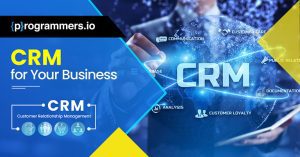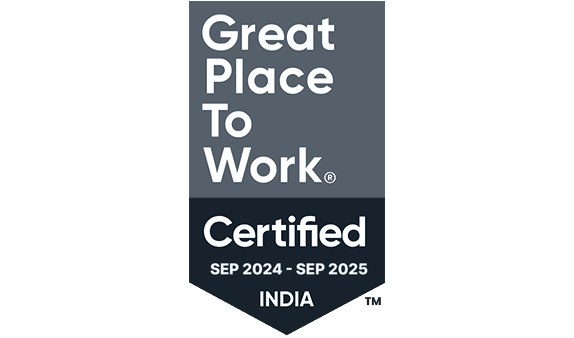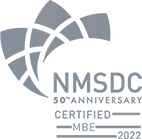How to Build a Custom CRM Software
Customer relationship management (CRM) software is a must-have for your business, regardless of its industry or scale. However, you may not find a ready-made system that perfectly suits your firm.
Research indicates that only 47% of organizations have a CRM adoption rate that exceeds 90%. The lack of versatility and adaptability in most CRM software explains this low adoption rate.
If you’re interested in a CRM that meets your needs, you should create a custom CRM from scratch. Here we tell you what CRM is and how to build one without making mistakes.
What Is CRM?
CRM is a tool that enables a business to nurture its relationships with clients. With CRM, you can evaluate how your business interacts with clients and measure crucial customer-related data.
CRM leverages databases that collect, store, and examine clients’ data. It makes it easy for you to manage new and existing customers efficiently. In turn, you can easily acquire new customers and retain the existing ones.
CRM aims to strengthen the relationship between a company and its customers. So, if you want to improve customer satisfaction, you must have a CRM system.
How Can You Build Custom CRM Without Making Mistakes?
There are so many reasons you may consider developing a custom CRM solution for your business. For example, a custom CRM will grow with your business. You can ensure that it only has the features your business needs and that it aligns with your workflow.
You can build a mistake-free custom CRM by following these steps:
Understand Your Business Goals and Needs
Before you determine how to build CRM, you should start by gauging why you need to build CRM and if you need it at all. Here, you have to consider what you want to achieve with your custom CRM.
Do you want to automate customer interactions and reduce costs? Are you looking to improve interdepartmental collaborations? Or do you want to use it to determine the best sales strategies?
Make a clear list of what you want to achieve by using CRM. This list will help you determine the type of CRM system you should construct. Your choice will fall into one of the following types of CRM software:
Operational CRM
This type will streamline and simplify the main processes in your organization. You can use it to simplify and automate customer service or sales.
Analytical CRM
The CRM will gather that from different touchpoints and analyze it. It will then provide you with the insight you need to make business decisions.
Collaborative CRM
You’re likely to build this CRM system if your goal is to improve teamwork or synchronicity in your business. It will facilitate the transparent sharing of data across the organization.
Consider the Restrictions That Apply
Depending on your industry, you might run into various restrictions when building your custom CRM. For example, if you’re in the healthcare industry, you will face restrictions on collecting clients’ data because of the HIPAA privacy policy.
Ensure that you understand such policies and other legal factors that may be at play when developing your CRM. You can update your firm’s privacy policy to ensure that customers’ data does not get into the wrong hands.
You should also consider building complex security models to protect your clients’ data. Determine the degree of access that your employees will have to the data.
Determine Your Preferred CRM Feature
You should identify the exact features that your custom CRM should have. Are you interested in sales analytic features or marketing management features? Do you want a customer support interface, integration with third-party systems, or call center management features?
Asking yourself these questions will help you complete a list of all your desired CRM features. Then, you can vet these features to see which ones are essential.
You should go through your list of business goals and the CRM features you want. Prioritize the features that align with your business goals.
Consider the UI/UX Design
Your CRM’s user interface and user experience will determine how well your employees embrace or interact with the CRM system. These features will also determine how easily your employees will transition to using the custom CRM.
For this reason, ensure that the developer shapes your CRM in a way that creates a seamless user experience. The experience should be smooth, even if your CRM is designed to handle complex business functions.
Engage Your Employees
Once you decide to build a custom CRM, ensure that your employees are on board. Ignoring this step will increase the risk of encountering challenges in CRM implementation. Talk to them about the CRM and how they will be using it.
You’ll need a reliable training infrastructure to ensure that your employees grasp all the vital details of the software. You should also monitor them to ensure that they use the custom CRM effectively.
Start Programming and Testing
Once you’ve determined the critical CRM features and design, your development team can start the programming process. At this stage, ensure that you outsource to a partner or a team with a proven record in developing effective CRM systems. Take the time to research and find a vendor who will do the job at a reasonable price.
You should specify the deliverables that the development team should achieve. It will also help to have a project roadmap to track the progress and key milestones.
Once the team starts building the CRM system architecture, you should conduct quality assurance (QA). The QA and other tests will ensure that your custom CRM is free from bugs and defects before you start using it.
Launch and Gather Feedback
Once you’re done with the above steps, you can launch your CRM system. Encourage the users to give their feedback on the system. You’ll need this feedback to polish your CRM software and ensure it performs flawlessly.
Want to Build a Custom CRM Without Making Mistakes?
An effective CRM will help you care for your customers and streamline your internal company processes. If you can’t find a ready-made CRM that suits your needs, it’s time to build a custom CRM. Creating a CRM from scratch might take up a lot of your time and effort.
You can partner with our team at programmers.io to build a reliable custom CRM. Contact us today and leverage an opportunity to work with a team that will help you achieve your CRM goals faster.
How can we help you?
We have hundreds of highly-qualified, experienced experts working in 70+ technologies.









